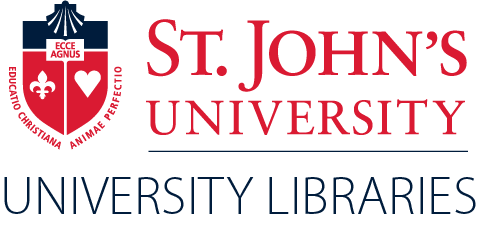- Home
- St. John's University Libraries
- About the Libraries
- Open Educational Resources (OER)
About OER
The use and creation of Open Education Resources furthers the University Mission of "Student success" and "Enhance our Teaching and Learning Environment" by helping our community learn to about academic-quality Open Textbooks, Open Access Journals, and Free and Open Source Software used in the creation and dissemination of globally-accessible scholarship.
Further, by promoting Open Access Publishing models, Open Education Resources, and Open Scholarly Knowledge-Sharing Environments, the library also supports the University Mission of Social Justice in service of Academic Research and applied service learning, by helping break down barriers-to-information for under-represented scholars to access recent, reliable information in multiple disciplines, and to contribute local scholarship to broader research and academic communities across the globe.
“Barriers to information” are a Social Justice Issue, and an open ecology of information helps break down barriers:
- Economic Barriers: Articles, books, media needed to do research and to advance scholarship are often behind a paywall, and access is prohibitively expensive
- Open options: Open Access Journals, Books, Texts, OERs
- Technological Barriers: Access to research is hampered by lack of hardware, software, lack of infrastructure, “poor tech choices,” lack of interoperability
- Open options: Free & Open Source Software & Platforms; ADA-Optimized Platforms
- Legal Barriers: Access to research is stunted by lack an “easy way” for scholarly authors to claim or relinquish license to information
- Open options: Creative Commons licensing, SPARC publishing addenda
- Information Literacy Barriers: Researchers do not know where to find the best information available, or don’t know how to use interface
- Open options: Federated Search of Reliable Open Resources, GMU-OER MetaFinder, OERcommons, DPLA, PubMed, etc.
- Cultural/GeoPolitical Barriers: Often interconnected to economic and technology barriers, existing structures and systems of information creation, preservation, access and dissemination have privileged wealthier and more powerful regions over others, with attending consequences that less powerful and less wealthy researchers have much less influence in and a higher "barriers to entry" into the information ecosystem
- Open options: Contributions to global Open repositories and global directories including DOAJ, DOAR, etc.
For more information about Open Educational Resources (OER) initiatives at St. John’s University, contact Prof. Kathryn Shaughnessy, Open Educational Resources Librarian, at [email protected].
